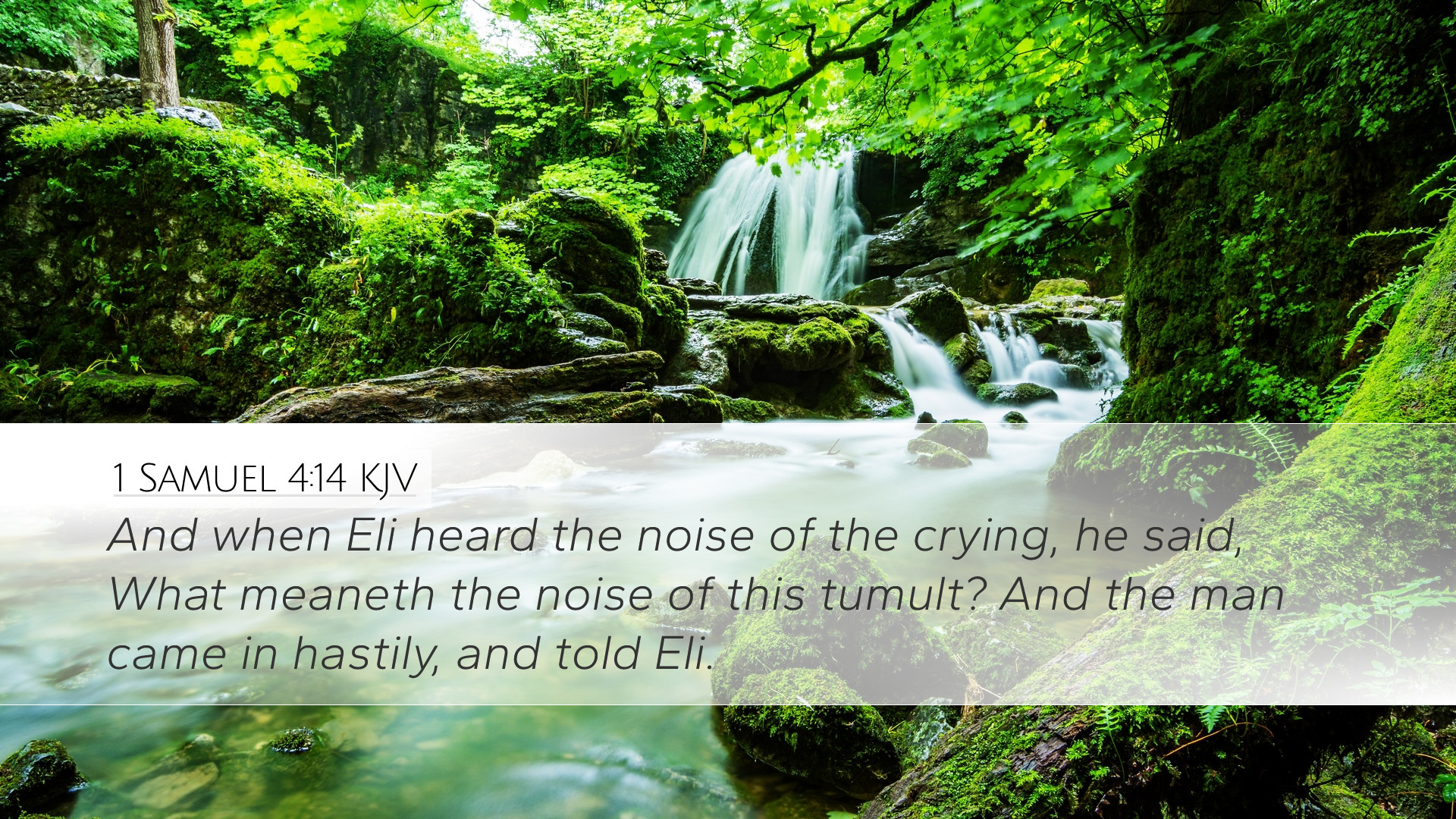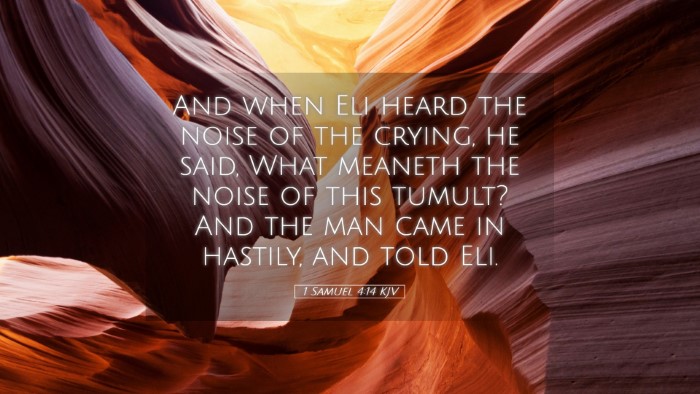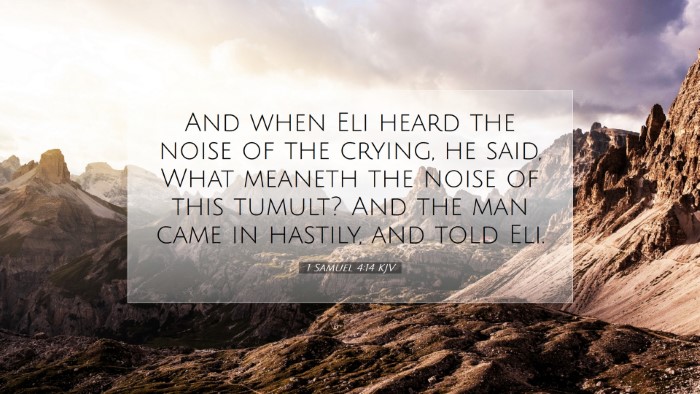Commentary on 1 Samuel 4:14
Verse Reference: 1 Samuel 4:14 - "And when Eli heard the noise of the crying, he said, What meaneth the noise of this tumult? And the man came in hastily, and told Eli."
Context of the Passage
The narrative of 1 Samuel 4 depicts a crucial turning point in Israel's history. The Israelites are engaged in battle against the Philistines, and the Ark of the Covenant has been captured. This event leads to tragic consequences not only for Israel but also for Eli, the high priest and judge. The verse in question serves as a significant moment of tension and foreshadowing of the calamities that will unfold.
Analysis of Key Themes
- Eli's Leadership: Eli's role as a priest and judge is critical here. His inquiry into the noise reflects a leadership that is deeply concerned about the well-being of his nation. Matthew Henry notes that Eli's reaction underscores his spiritual desolation, which parallels Israel's own spiritual decline.
- The Noise of Tumult: The phrase "noise of this tumult" signifies not just confusion but a deep-seated dread. Adam Clarke elaborates that such cries indicate a significant disturbance in the camp, suggesting that even the high priest was unaware of the dire situation, highlighting the theme of spiritual blindness.
- Impending Judgment: The context of Eli’s impending judgment is evident. Albert Barnes points out that the noise represents the culmination of God’s judgment on Eli’s house due to his failure to restrain his sons, Hophni and Phinehas. This judgment manifests in the loss of the Ark and the terrible news that follows.
Insights from Commentators
Matthew Henry: In his commentary, Henry emphasizes that Eli demonstrates an awareness of the possible calamity without fully grasping the severity of the situation. He reflects on the irony that Eli, who should be spiritually vigilant, is caught off guard by the turmoil around him. Henry suggests that this serves as a metaphor for spiritual leaders who may be engaged in their duties yet remain inattentive to the spiritual dangers surrounding them.
Albert Barnes: Barnes provides insight into the character of the man who comes to report to Eli. This man is a messenger of doom, and his arrival not only conveys news but also represents the hope of human news amidst divine judgment. The urgent delivery of the message starkly contrasts the indifference shown prior to the conflict, illustrating a key biblical principle that leaders must be watchful and ready for the unexpected consequences of their actions.
Adam Clarke: Clarke’s detailed analysis presents the importance of awareness in spiritual leadership. He notes that Eli’s perception of the cries indicates a lack of spiritual insight. Clarke interprets the tumultuous noise as a prophetic signal of disaster that Eli should have sensed earlier. Here, Clarke encourages leaders to cultivate discernment to perceive and act upon the signs of impending judgments.
Theological Implications
This verse invites readers to reflect on the nature of spiritual leadership and the responsibility that comes with it. The reactions of Eli, contrasted with the dire news, underscore a deeper theological truth regarding the consequences of ignoring divine warnings.
Lessons for Spiritual Leaders
- Awareness and Vigilance: This passage serves as a cautionary tale for leaders to remain spiritually vigilant. Leaders must seek God’s wisdom consistently and be alert to the signs of turmoil, both within their congregations and the broader world.
- Responsibility for Others: As Eli was responsible for his sons and the nation of Israel, so are today’s leaders charged with the spiritual well-being of those under their care. Ignoring sin and corruption can lead to dire consequences not only for the leaders themselves but also for those they lead.
- The Call to Action: Leaders are called not only to witness the turmoil but also to act in faith. The hubbub surrounding Eli invites a response, underscoring the proactive nature of faith that leads to decisions aligned with God's will.
Conclusion
1 Samuel 4:14 contains a poignant reminder for contemporary spiritual leaders and scholars alike. Eli’s mix of concern and ignorance mirrors challenges faced by many today—often aware of spiritual unrest yet lacking actions commensurate with their roles. The verse serves to remind us that while God’s judgment is certain, the heart of leadership remains in the call to be ever vigilant, responsive, and reliant on God’s guidance amidst the tumult of life.


